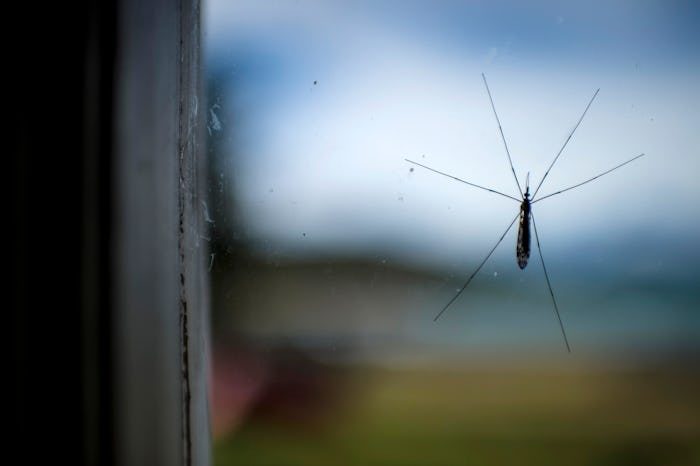News

How To Tell You Don't Have Zika, For Yourself, Your Baby, & Your Community
Though the Zika virus is hardly new, a huge, ongoing outbreak in Brazil has brought the disease international attention. Transmitted by mosquitos, the virus is most dangerous for pregnant women because their infection can lead to prenatal developmental issues, including microcephaly. That discovery caused the World Health Organization to declare the Zika outbreak a public health emergency on Feb. 1 and advise pregnant or soon-to-be pregnant women to avoid traveling to the growing list of affected countries. But what if you may have come in contact with the virus? Here's how to tell you don't have Zika.
What's most difficult about studying and even recognizing Zika is that oftentimes infected persons show no symptoms at all. According to Vox, most people who are infected do not seek medical attention because they do not need it, but that does not mean they can't transfer it to others. If they are bitten by a mosquito, that mosquito can infect another person, and there have been confirmed cases of sexually-transmitted Zika, CNN reported. So, even if you are not showing symptoms, you may have come in contact with the virus (have you been to any one of these countries lately?). The best course of action is visiting a doctor to see if you are a carrier.
That said, Zika can have symptoms. Unfortunately, those symptoms are very general and might be confused with those of a common fever. According to the Centers for Disease Control and Prevention, people infected with Zika can have a high temperature, muscle soreness, headaches, red eyes, and/or a body rash. They may even have some abdominal pain, nausea, or diarrhea. It's rare that anything more serious will happen, or that these symptoms will last more than a week. If you have any of these symptoms and you can't shake them, most likely you do not have Zika, but you should still visit a doctor.
In very rare cases of Zika, there are more serious complications that lead to something called Guillain-Barré syndrome, a neurological condition that damages nerve cells and leads to muscle weakness, even paralysis. This more dangerous symptom can last weeks. If it has been a month since you have traveled to a Zika watch list location and you are not showing this symptom, most likely you will not develop it, but, still, it's good to get tested so you're certain.
So, what do you do if you are pregnant and think you may have been infected? How can you be sure? When you go to the doctor, you can get a blood test to see if any symptoms you are showing are in fact caused by Zika. Second, you can get fetal ultrasounds to see if your infant is showing physical signs of carrier infection. Third, you can get an amniocentesis to test if your infant has in fact been infected.
With such a variable, but potentially deadly virus, the safest and surest way to tell you don't have Zika is to see a doctor for testing. Even if you're not pregnant but you suspect you may have it, getting tested is a good idea. Better to know if you're a carrier so that you are not risking the health of those around you.